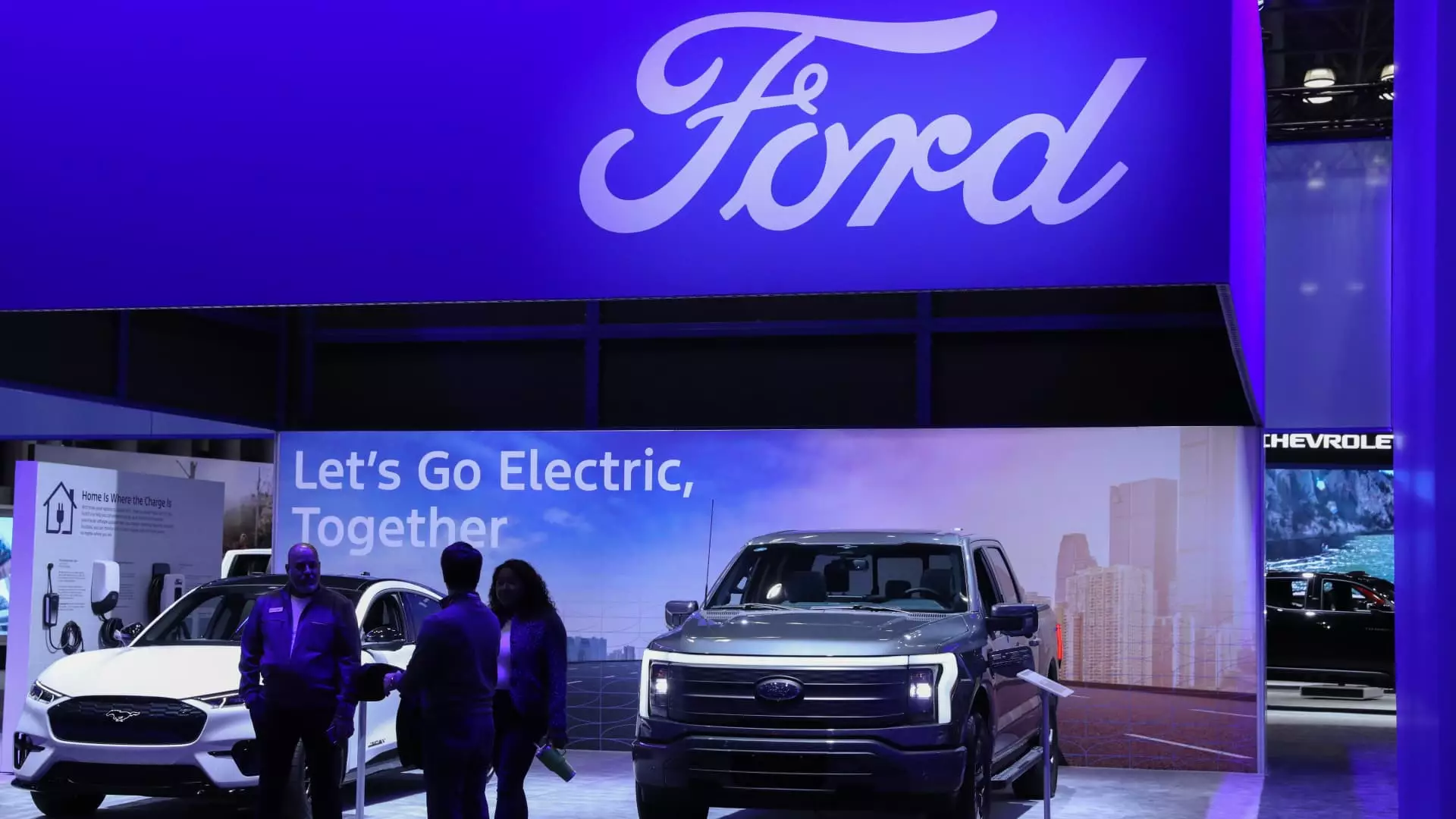Ford Motor recently announced a shift in its electric vehicle (EV) strategy, delaying production of a next-generation all-electric pickup truck and canceling plans for a three-row electric SUV. The company stated that it will now prioritize the development of hybrid models and electric commercial vehicles, such as a new electric commercial van in 2026, followed by two EV pickup trucks in 2027.
Strategic Focus
Ford’s decision to focus on commercial land trucks and SUVs stems from a desire to leverage its competitive advantage in these segments. John Lawler, Ford’s CFO, emphasized the importance of delivering a capital-efficient and profitable electric vehicle business through these strategic shifts. However, the short-term implications of these changes will come at a cost to the company.
Financial Impact
The decision to cancel the three-row SUV and reallocate resources towards hybrid models and electric commercial vehicles will result in a special noncash charge of approximately $400 million for Ford. Additionally, there may be further expenses and cash expenditures of up to $1.5 billion associated with these changes. As a result, Ford will reflect these adjustments as a special item in the relevant financial quarter.
While vehicle production at the new Tennessee plant was initially slated to begin next year, Ford has chosen to delay the production of the all-electric pickup truck to 2027. The company still plans to start battery cell production at the site in 2025. These modifications reflect Ford’s response to the slower-than-expected adoption of EVs in the market and the challenges faced by automakers in achieving profitability in this space.
John Lawler highlighted the importance of being nimble and responsive to customer feedback in shaping Ford’s EV strategy. The company aims to provide customers with a greater range of electrification choices based on market demands and preferences. By listening to customer needs and evolving its product offerings accordingly, Ford seeks to enhance its competitive position in the EV market.
Ford’s future capital expenditure plans will involve a shift from spending 40% on all-electric vehicles to spending 30%. This adjustment reflects the company’s strategic realignment towards hybrid models and electric commercial vehicles. Ford’s commitment to profitability and capital efficiency in its EV business underscores its ongoing efforts to adapt to market dynamics and consumer trends.
Ford’s decision to reevaluate its electric vehicle strategy represents a proactive response to market conditions and customer preferences. By focusing on commercial land trucks and SUVs, prioritizing hybrid models, and realigning its capital expenditure plans, Ford aims to strengthen its position in the rapidly evolving EV market. The company’s ability to adapt to changing consumer needs and industry trends will be crucial in ensuring its long-term success in the electric vehicle sector.

